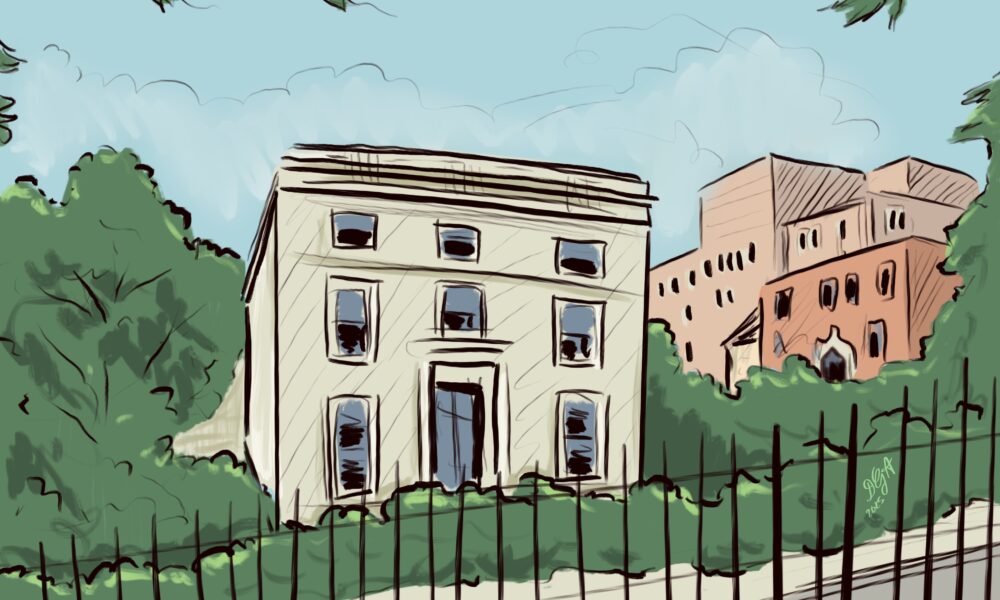The Post-Graduate Students’ Society (PGSS) of McGill University held its second council meeting of 2025 on Feb. 12. After approving the agenda, PGSS councillors moved on to discuss budget cuts, hiring freezes, and questions for the upcoming referendum.
The first discussion item was the potential impact of staff cuts in the Faculty of Arts on Teaching Assistant (TA) positions. This follows Provost and Executive Vice-President (Academic) Christopher Manfredi’s announcement that the university will cut 250-500 positions in response to a $15 million CAD budget deficit for the upcoming fiscal year.
Zoe Neubauer, a third-year PhD candidate in History, explained that an internal survey in the Graduate Department of History and Classical Studies found that proposed cuts to the teaching support budget would adversely impact graduate students’ education, scholarly research, and quality of life. They requested that the PGSS circulate the survey results to all Post-Graduate Student Associations (PGSAs) in the Faculty of Arts and formally condemn the university’s proposed labour cuts.
All new business items involved adding questions to the upcoming PGSS referendum taking place April 7-14. One of the motions sought to add a referendum question on PGSS lobbying the government to make labour rights applicable to graduate research. In other words, it sought to add a question to the referendum to get the PGSS to ask the Government of Quebec to classify graduate research as a job, not just part of academic coursework.
This motion sparked a 27-minute debate among attendees. Opponents raised concerns that such a change could affect the tax status of grants and awards and put students’ education at risk if they failed to meet job requirements.
“Making the argument to consider grad students—Master’s and PhD students—completely as employees will completely […] disregard the fact that [they] are still students,” PGSS External Affairs Officer Naga Thovinakere said.
Supporters argued that the broader PGSS membership should decide these debates through a referendum vote and with campaigning from ‘Vote Yes’ or ‘Vote No’ committees rather than just the 60 voting members present.
“The debates that we’re having right now and the nitty-gritty can be further dealt with [in the future],” Sheheryar Ahmed, External Affairs and PGSS representative from Graduate Islamic Studies, said. “Right now, we should focus on whether or not this should be a question that the general student body should have an opinion on.”
With 14 votes in favour and 18 against, the motion did not pass.
The council voted in favour of adding a question to the referendum on approving a new provider for online primary and mental health care for members. This referendum question stands to switch PGSS’s telemedical services from current provider Dialogue, for which members pay $45 CAD per year, to Digital Doctor, a service hosted by Maple, for $25 CAD per year, maintaining the current opt-out option.
In addition to Digital Doctor primary care, councillors also passed a motion to add a question to the referendum regarding mental health care under the service. This would be an additional $30 CAD per year fee that members could add to their Digital Doctor primary care subscription, allowing access to online mental health care; this motion also passed with an overwhelming majority.
Moment of the Meeting:
In its final motion of the night, the council voted to include a referendum question proposing a significant reduction to the PGSS Special Projects fee. If approved, the fee would drop from $4.60 CAD to $1.50 CAD, citing severe underuse. According to the motion, the fund has primarily served as a contingency for potential legal fees and website maintenance rather than supporting new projects in recent years.
Sound bite:
“It’s useful [and] important to have access to some kind of virtual healthcare platform. [It is] just too bad that this requires us giving money to privatized healthcare, and it’s unfortunate that the state of our public healthcare system means that [private virtual healthcare] is something we want to do, which I and my members are opposed to [….] But I’m not opposed because we’re not going to fix the public healthcare system at PGSS [council].” — School of Urban Planning PGSA representative Brenagh Rapoport, discussing the switch to Digital Doctor.
A previous version of this article did not list Zoe Neubauer’s name. The Tribune regrets this error.







